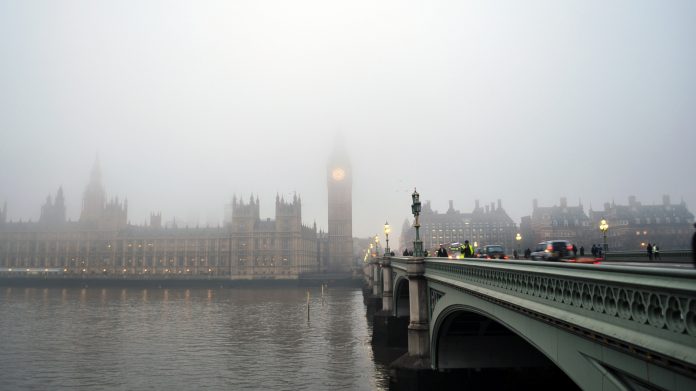As calls for UK Prime Minister Theresa May to resign intensified the pound slipped versus the euro on Tuesday. The pound euro exchange rate dropped to a low of €1.1654, its second straight day of losses. The pair is extending those losses in early trade on Wednesday.
| What do these figures mean? |
|---|
| When measuring the value of a pair of currencies, one set equals 1 unit and the other shows the current equivalent. As the market moves, the amount will vary from minute to minute. If the euro amount increases in this pairing, it’s positive for the pound. Or, if you were looking at it the other way around:1 EUR = 0.87271 GBPIn this example, €1 is equivalent to approximately £0.87. This measures the euro’s worth versus the British pound. If the sterling number gets larger, it’s good news for the euro. |
Political risks in the UK are flaring up once again. Theresa May continues to cling to power as backbenchers call for her resignation. Sir Ian Brady – Chairman of the historic 1922 Committee – reportedly met with Theresa May on Tuesday and asked her to set her timetable for her resignation. Mr Brady is unlikely to get what he is looking for as Theresa May is clear that she will only resign once Brexit has been achieved. Whether the Conservative party will allow her to do this is questionable. Signs that the Conservative party is looking to oust Theresa May sooner could send the pound lower, owing not only to the political instability but also the fact that a hard line Brexiteer could take over.
| Why is a “soft” Brexit better for sterling than a “hard” Brexit? |
|---|
| A soft Brexit implies anything less than UK’s complete withdrawal from the EU. For example, it could mean the UK retains some form of membership to the European Union single market in exchange for some free movement of people, i.e. immigration. This is considered more positive than a “hard” Brexit, which is a full severance from the EU. The reason “soft” is considered more pound-friendly is because the economic impact would be lower. If there is less negative impact on the economy, foreign investors will continue to invest in the UK. As investment requires local currency, this increased demand for the pound then boosts its value. |
Whilst concerns over the leadership of the Conservatives weighed on the pound, progress in cross party talks had been offering support to the currency. The pound rallied at the end of last week as investors became increasingly optimistic that Theresa May would compromise over the customs union style arrangement in order to win Labour’s support to push the Brexit deal through Parliament. However, more recent reports point to the talks stalling once again, which is weighing on demand for the pound.
Lacklustre Eurozone Data Keeps Euro Gains Limited
The euro was broadly out of favour on Tuesday following lacklustre eurozone data. German factory orders disappointed investors once again. New orders grew just 0.6% in March from February, snapping 4 straight months of declines, but still below analysts’ expectations of 1.5%.
Adding to the euro’s woes, the EU Commission also cut its growth outlook for the bloc for this year. Growing uncertainty owing to trade conflicts and weakness in the auto industry are expected to hold back output. Growth for the European Union was lowered to 1.2% for this year, down from 1.3%.
With lacklustre data and growth set to weaken the European Central Bank will be in no rush to start raising interest rates. As a result, demand for the euro was weak — albeit stronger than the pound.
| Why do raised interest rates boost a currency’s value? |
|---|
| Interest rates are key to understanding exchange rate movements. Those who have large sums of money to invest want the highest return on their investments. Higher interest rate environments tend to offer higher yields. So, if the interest rate or at least the interest rate expectation of a country is relatively higher compared to another, then it attracts more foreign capital investment. Large corporations and investors need local currency to invest. More local currency used then boosts the demand of that currency, pushing the value higher. |
ECB President Mario Draghi will take to the stage today. Investors will listen closely for clues as to what the ECB plans next for monetary policy.
This publication is provided for general information purposes only and is not intended to cover every aspect of the topics with which it deals. It is not intended to amount to advice on which you should rely. You must obtain professional or specialist advice before taking, or refraining from, any action on the basis of the content in this publication. The information in this publication does not constitute legal, tax or other professional advice from TransferWise Inc., Currency Live or its affiliates. Prior results do not guarantee a similar outcome. We make no representations, warranties or guarantees, whether express or implied, that the content in the publication is accurate, complete or up to date. Consult our risk warning page for more details.
This article was initially published on TransferWise.com from the same author. The content at Currency Live is the sole opinion of the authors and in no way reflects the views of TransferWise Inc.





